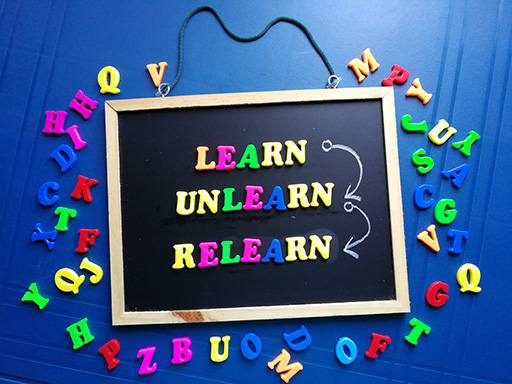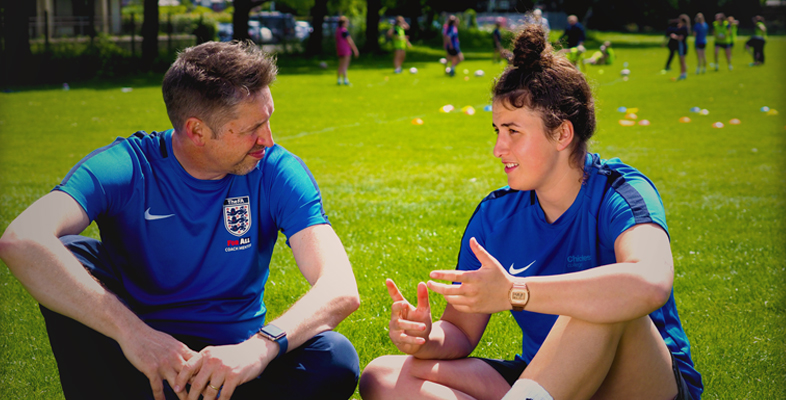6 Cognitive rigidity: learning often needs unlearning
If new ideas are resisted by coaches, some claim (provocatively, perhaps) that a process of unlearning is required. As one teaching researcher suggests: ‘[practitioners] must learn to treat knowledge as something they construct, test, and explore, rather than as something they absorb and accumulate. They must unlearn much of what they know’ (Cohen, 1991, p. 46).

The role of the coach developer is often to support coaches who are resistant to change. Practices become embedded and ritualised making change challenging.
Activity 7 Colleagues talking about unlearning
Listen to this clip of colleagues Ross Garner, Owen Fergusson and Dom Price, who work in technology and learning businesses. They all embrace the need for unlearning in their sector. However, what aspects do they identify as problematic? Do these concerns mirror your experience of coaches changing their practice?
Transcript: Audio 1
Discussion
The problems the colleagues identified as problematic were:
- particularly later in their careers people can become more fixed in their ideas, and dropping long-held ideas can be hard
- adopting new ideas often challenges people’s core beliefs
- many people focus on past practice as opposed to what their practice can become in the future
- the mindset someone holds is important including a curiosity about practice (i.e. the mystery of practice)
- people need to be willing to fail as part of any unlearning.
In terms of your experience of coaches changing their practice the technology sector is ever changing while sport and coaching is slow to change and is conservative (Farrow et al., 2008). Perhaps this is because many coaches have developed ideas, beliefs and habits as players and bring these with them into their coaching. Rushmer and Davies (2004) highlight that the barriers to change include habit, security, fear of the unknown, stereotypes and lack of awareness of the need to change. Do these concerns mirror your experience of coaches changing their practice?
Open mindedness is a vital ingredient of successful unlearning. Therefore, coach developers need to establish sound learning relationships and trust with the coaches they work with. Unlearning is a contestable concept and as such you may disagree with the term and what it implies. Therefore, it is timely that you are introduced to the course forum where you have the option to share your thoughts with others about this and other topics on the course.
